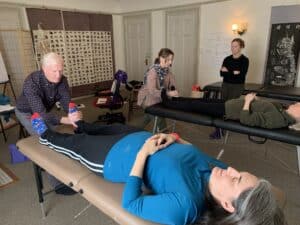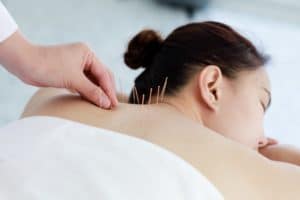When someone experiences a stroke, the blood supply to the brain is interrupted or reduced, depriving the brain tissue from receiving the oxygen and nutrients it needs to function. Strokes are considered medical emergencies, and they require immediate treatment to reduce brain damage and other complications. There are two main causes of stroke: blocked arteries (ischemic stroke) and a leaking or bursting blood vessel (hemorrhagic stroke). Risk factors include age (people over the age of 55 are at increased risk), high blood pressure, obesity, heavy drinking, diabetes, cardiovascular disease, and a family history of stroke. Strokes can cause significant complications, such as impaired motor skills, brain function, emotional regulation, and neurological function. The path to recovery may be long and difficult, and those recovering from a stroke may experience cognitive impairment, reduced mobility, depression, mood shifts, sensory changes, and other challenges. While medication can assist with some of these issues, holistic treatments, such as physical therapy, counseling, and acupuncture, can complement pharmaceuticals and other western interventions and support stroke recovery. Let’s explore the ways in which acupuncture therapy can help to support physical, mental-emotional, and neurological recovery after a stroke.
Part I: Acupuncture For Motor Skills and Physical Recovery
Strokes can affect your motor skills in a variety of ways. During the event, you may experience paralysis, numbness in your arm, face, or leg (typically on one side of the body), slurred speech, loss of balance, vision problems, or seizures. It’s essential to seek immediate medical attention to prevent more severe outcomes like brain damage or long-term disability. As you focus on your physical recovery following a stroke, Western physicians may recommend medications like thrombolytic drugs or anticoagulants (which break up blood clots in your brain’s arteries) or drugs to reduce blood pressure and prevent seizures or prevent blood vessel construction. However, many of these pharmaceuticals can lead to unwanted side effects, such as drowsiness, headaches, nausea, hair loss, weight gain, tremors, and other undesirable issues. When medications are necessary, acupuncture can help mitigate many of these side effects.
What the Research Says
Acupuncture shows great promise in its ability to restore motor skills to those recovering from a stroke. One clinical trial of 80 patients with post-stroke syndrome found that those who received acupuncture in addition to physical rehabilitation experienced significantly greater improvements in motor skills and life quality after four weeks of daily treatments. Another study concluded that the combination of daily exercise monotherapy and acupuncture improved motor function and cerebral blood flow for those with post-stroke hemiplegia, while other research looking at the impact of acupuncture on post-stroke facial paralysis concluded, “scalp acupuncture optimizes patient outcomes for patients with post-stroke facial paralysis.” These findings have been confirmed across multiple studies, underscoring the benefits of acupuncture therapy for those experiencing post-stroke paralysis and impaired motor function.
Acupuncture Can Help With Other Post-Stroke Physical Challenges
In addition to supporting post-stroke hemiplegia and paralysis, acupuncture can help stroke patients improve many other physical challenges. Strokes affect multiple body systems (neuromuscular, digestive, and cardiovascular), so there are many challenges and deficits that can result from a stroke. Here are just some of the ways that acupuncture can support stroke recovery:
- A study found that those diagnosed with post-stroke dysphagia (i.e., difficulty swallowing or chewing) experienced significantly better outcomes when they received acupuncture treatment in addition to standard functional training.
- Another study looking at post-stroke upper limb spasticity found that patients receiving scalp and body style acupuncture demonstrated “significantly greater improvements” than those who received pharmaceutical medications alone.
- For stroke patients that develop foot drop (movement impairment of the ankle, foot, and toes following a stroke), research shows that acupuncture therapy can significantly improve motor function.
- Some people develop chronic hiccups after a stroke, but researchers have found that “acupuncture treatment combined with medications is superior to drug monotherapy.”
- Acupuncture can provide “superior short and long-term relief from post-stroke constipation and improvements in relevant gastrointestinal hormone levels” after a stroke.
While more comprehensive studies are needed to deepen our understanding of acupuncture’s impact on stroke recovery, existing research indicates that seeking acupuncture therapy after a stroke can support your physical recovery in significant ways.
Part II: Acupuncture for Mental-Emotional Recovery
Many people recovering from strokes develop symptoms of depression. Changes in mood, loss of appetite, sleep disturbances, and other signs of depression can make the stroke recovery process especially challenging. Fortunately, existing research has shown that acupuncture therapy can alleviate these symptoms and improve your mental and emotional recovery without the side effects or risks of pharmaceutical drugs.
Acupuncture for Alleviating Symptoms of Depression
So far, several studies have demonstrated the therapeutic benefits of acupuncture in alleviating depression symptoms in stroke patients. According to one study, the number of patients classified as suffering from depression fell from 22 to just seven after receiving four weeks of acupuncture therapy, while the number of people with depression in the control group only fell from 24 to 20 within the same period. A randomized controlled clinical trial looking at the impact of acupuncture on patients with post-stroke depression concluded, “the acupuncture treatment group achieved a total effective rate of 86.7 percent,” while the drug control group achieved a total effective rate of 66.7 percent. In a similar study, researchers found that acupuncture substantially improves post-stroke depression when compared to those who received a pharmaceutical-only regimen. Another study found that acupuncture can be more effective in treating post-stroke depression than SSRI medication, especially when acupuncture therapy is combined with Chinese Herbal Medicine.
Improving Sleep and Cognition Through Acupuncture Therapy
Research has shown that acupuncture offers relief for many other post-stroke depression-related issues. One study found that acupuncture, especially electroacupuncture, can improve sleep quality and duration for post-stroke patients. Researchers have also found that acupuncture and Chinese herbal medicine can alleviate cognitive dysfunction after suffering a stroke. After receiving daily acupuncture therapy for 20 days, participants demonstrated improved cognitive ability and reduced paralysis. Aphasia, defined as the weakened ability to communicate through speech and written language, is fairly common after a stroke. One study found that the combination of acupuncture therapy and the pharmaceutical donepezfil concluded, “the integrative approach of donepezfil, scalp, and body acupuncture therapies combined with speech and rehabilitation therapies was by far the most effective treatment protocol for aphasia from ischemic stroke.”
Part III: Acupuncture for Neurological Recovery
Stroke recovery also involves a neurological component. As the brain recovers from this traumatic event, acupuncture can improve brain connectivity and reduce the risk factors associated with another stroke. One study of stroke patients who received acupuncture therapy and Chinese herbal medicine experienced markedly better outcomes than those who received medication only. The researchers concluded, “blood tests and imaging results verify that acupuncture plus herbs is effective for the treatment of cerebral infarctions.”
Acupuncture to Support Ischemic Stroke Recovery
Acupuncture can be particularly effective in supporting the recovery of those who have suffered an ischemic stroke. Western medicine typically prescribes thrombolytic monotherapy, but acupuncture can make these drugs work more effectively. One study found that stroke patients who received acupuncture in addition to thrombolytic medication experienced more effective and lasting results than those who received the medication alone. Another study found that acupuncture led to improved changes in brain functional connectivity in stroke patients. The impact of acupuncture therapy on ischemic stroke recovery is further supported by research conducted on rats, wherein subjects receiving acupuncture experienced improved neurological function and motor skills compared to the control group.
A Holistic Approach to Stroke Recovery
People who have experienced a stroke may wish to consider a more integrated and holistic approach to rehabilitation and recovery. Acupuncture encourages the body to move back into alignment and balance from within. As you start your journey to recovery, schedule an appointment with an acupuncturist who can create a customized treatment plan to help you achieve your goals.
Call Inner Works Acupuncture today at (503) 227-2127 to schedule an appointment with an experienced Portland healer.




